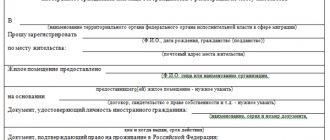Home » Housing disputes » How to deprive the owner of a share in an apartment without consent
1
Shared ownership is often directly related to all sorts of conflicts and disagreements between the co-owners of the property. As a result, there is an urgent need to buy out or in any other way take away the share of another person in order to finally get rid of problems and start living a normal life. But without the consent of the owner of the share, it will not be possible to deprive him of his share in the usual way. What to do in such a situation? Read in this article.
Is it possible to deprive a share in an apartment without consent?
With shared ownership, the property is legally divided into parts. Moreover, each owner has equal rights to use this object.
This type of property is most often used:
- When alienating part of the property in favor of other people.
- Inheritance.
- Division of property by former spouses.
In all these cases, the owner has the right to dispose of the received property. There are some restrictions regarding the pre-emptive right to purchase a share upon its sale. But the main thing is that neither owner can force the other to alienate his share of the property. Only the court has this right.
Therefore, the law allows only three ways to transfer part of the apartment to yourself:
- With the consent of its owner. In this case, the parties agree to conduct a sale or donation transaction.
- Deprivation of property rights by a court for debts on utility bills and other penalties. The share of such an owner will be sold at auction, the money will be used to pay off debts, and the debtor himself will receive the remainder.
- Redemption of a small share. Only a court can recognize such a share of an apartment. If such a decision is made, then it can be purchased for the cadastral value.
For other apartment owners, the second method is unacceptable, since the share will be sold at auction, and they will again have to resolve the issue with the new owner. The most preferable option is a buyout with the consent of the owner. If this fails, you need to file a claim to recognize his share as insignificant and then buy it out. This can also be done if the owner of the share is mired in debt and has no intention of paying it off.
Allocation of shares and compensation
The appearance of parts of housing in the property belongs to the “heavy legacy” of the privatization process that began in the 90s of the 20th century. The opportunity to acquire and sell shares in apartments was used not only for the purpose of obtaining registration, but also for moving in, turning the lives of neighbors into hell with the prospect of taking possession of the entire property for next to nothing.
Precedents reached litigation in the Supreme Court, since, in accordance with Article 288 of the Civil Code of the Russian Federation, residential premises are intended for living, and according to Article 247 of the Civil Code of the Russian Federation, shared property must be disposed of by agreement of the parties, in the absence of which a court decision must be followed. Theoretically, the owner could live with two square meters, which ran counter to the interests of the other residents and required deprivation of property rights through the court.
For the first time, a revolutionary decision was made by the Supreme Court in 2012 on the forced payment of compensation for deprivation of ownership rights to a share in an apartment to the owners of a small part. In the absence of the owner’s consent, payment of funds requires the simultaneous fulfillment of three conditions in accordance with clause 4 of Article 252 of the Civil Code of the Russian Federation:
- Insignificance of the share. This parameter is not considered in relative terms, but is equated to the square footage per person established by local authorities for living in a particular region. For example, 1/6 of an apartment having 30 and 120 square meters are different numerical values, leading to a different approach.
- Lack of real possibility of separation. To forcibly deprive ownership of a share in an apartment, the court considers two criteria:
- comparison of the size of the owned living space by footage with the size of the minimum room;
- the basis for the acquisition, allowing one to draw a conclusion about the purpose (neutral factor - a consequence of privatization, negative - purchase by the owner, who knows in advance about the impossibility of allocation).
- Lack of significant interest in intended use. The courts take into account the availability of other living space.
The State Duma is considering a bill according to which Russians will be deprived of the right to inherit a share in an apartment, obliging them to sell part. In practice, when transferring property into shared ownership, the future owners will have to decide within a three-month period who will become the sole owner. Otherwise, the property will be sold at auction with deprivation of ownership rights to the apartment in exchange for the proceeds divided between the participants in proportion to their shares.
How to deprive a share in a privatized apartment without consent?
To recognize a share in real estate as insignificant, you must have evidence of the following conditions:
- Small share size. In this case, the court will not look at the conditional size (one fifth, etc.), but at the size of the share in relation to the size of the apartment. A fifth of a five-room apartment will be equal to one room and will not be considered an insignificant share.
- Non-participation in the maintenance and management of common property. The owner of the share does not live in the apartment and does not pay for utilities and repairs. It is necessary to prove these facts on the basis of documents, as well as witness testimony.
- No urgent need for housing. It is enough to prove that the owner of the share has other housing.
It is important to understand that all three signs must be present. Otherwise, the court will not recognize the share as insignificant.
What is important for the court when considering a case?
In order for the apartment owner to lose his share by court decision, it is necessary to collect evidence that there are grounds for this.
When issuing an act, the court will pay attention to the following points:
- Apartment area. Is there a room or other premises in the property that is approximately equal in size to the part being forcibly purchased? If it does not exist, then termination of ownership is virtually impossible. For example, in an apartment with 1 room.
- Circumstances of acquisition of ownership. If the property was acquired under a purchase and sale agreement and the remaining persons gave their consent to the new tenant moving in, then the court will refuse to deprive the owner of the apartment. When it comes to inheritance, donation, that is, a situation where the new owner was in bondage, then if there is objective evidence, deprivation of ownership of part of the property is quite possible.
- Availability of other living space. The court will deprive a person of a share in an apartment if he has a place to live. This may be a house in another region. The main thing is that the room is suitable for habitation.
All evidence is assessed in its entirety. Witness testimony will not have priority over documents.
The question of whether it is possible to deprive the owner of an apartment or a share in it should be answered positively if there are grounds specified in the law.
However, a homeowner who wants to evict a neighbor must understand that this is a long process and fraught with difficulties in paperwork. Seeking help from professionals will be useful and will save time and money.
Procedure
The entire process of going to court is strictly defined by law. You need to go through the following stages:
- Try to resolve the conflict before trial.
- Collect all documents.
- Draw up a statement of claim indicating the provisions of the law and links to the collected certificates.
- Send it to court, attaching documents. All defendants must also receive copies of the application.
- Participate in court hearings, defending your rights and proving the essence of the claim.
- If the decision is not in favor of the plaintiff, he can appeal it to a higher court.
- If the decision is positive, then the plaintiff must pay compensation to the defendant for his share.
- Register ownership rights to the received share in Rosreestr.
You can also combine shares if, after the buyout, one owner has several of them.
Basic moments
Often, several citizens own shares of real estate. This situation arises if property is inherited or divided after divorce.
Important! If one of the co-owners gives up his share for registration, then unexpectedly many applicants may also arise for the property. Such transactions are usually formalized using a deed of gift.
You cannot simply deprive a person of ownership of a share. Voluntary consent or a court decision is required.
Statement of claim
The requirements for drawing up a claim for the redemption of a share in an apartment are specified in Articles 131-132 of the Code of Civil Procedure of the Russian Federation. The claim must contain:
- The name of the application and the court to which it is sent.
- Details of the plaintiff and defendant.
- Accurate information about the apartment and insignificant share in it.
- Circumstances of emergence of property rights.
- Information about attempts to reach an agreement out of court.
- Justification for the insignificance of the share.
- Requirements.
- List of documents.
- A list of witnesses whom the plaintiff wants to call to court.
- Date and signature of the plaintiff.
Since there are many legal nuances in drawing up such claims, it is worth seeking the help of a qualified lawyer.
Loss of property rights due to mismanagement
No matter how dubious this may seem at first glance, mismanagement and negligence are compelling reasons not only for eviction of a tenant from public housing, but also a completely legal basis for depriving the owner of a privatized apartment of ownership rights.
Article 293 of the Civil Code implies “termination of ownership of unmanaged residential premises” and prescribes the procedure for action in such situations. So, if the owner of an apartment does not look after his property, refuses to maintain and repair it, and also violates public order in the house and disturbs neighbors, then the municipal authorities can issue him a warning and set a deadline for carrying out repair work. However, if the offender does not take any retaliatory measures, then the court, at the request of the administration, has the right to decide to sell such an apartment at public auction and pay the proceeds to its owner, in addition to expenses covering the repair of the residential premises and the elimination of other consequences of the negligence of the former owner.
A similar decision was made in November 2021. The administration of the Morshansky district of the Tambov region filed a lawsuit to deprive the owner of the apartment of its negligent owners and sell the property at public auction. The reason for such radical measures, explains lawyer Oleg Sukhov, was the systematic failure of the owners to fulfill their responsibilities for maintaining the housing, which led to complete unsanitary conditions, damage and destruction of walls, windows and floors in the apartment.
During the trial, it was found out that the real owner inherited the property after the death of the mother, but soon there was a fire in the apartment, the consequences of which have not yet been eliminated due to the lack of money from the heir. The court, guided by Article 210 of the Civil Code, according to which the burden of maintaining the property is borne by its owner, as well as the norms of the Housing Code, which do not allow mismanagement of one’s home, satisfied the administration’s claims. Thus, the ownership of the apartment by the previous owner was terminated, and local governments were entrusted with the obligation to sell the property at public auction. The decision was not appealed and entered into legal force.
Required documents
The documents attached to the claim must include:
- A copy of the plaintiff's passport.
- An extract from the house register about those registered in the apartment.
- Extract from the Unified State Register of Real Estate.
- Technical documentation.
- Receipt of payment of the duty.
- Documents confirming the validity of the claim - a certificate of non-payment of utility bills, data from the Unified State Register of Real Estate on the availability of other housing for the defendant, etc.
Some documents can be provided directly in court.
Methods of deprivation of property rights
Deprivation of ownership of real estate very often becomes the subject of legal disputes. Each owner should know his rights to own property in order to avoid possible problems. Let's consider in what cases a person can be deprived of the right to own real estate. Let's look at the instructions and methods for depriving property rights.
In accordance with the current Constitution of the Russian Federation, it is possible to deprive the owner of his right to an apartment only by a court decision. No other authority has the power to deprive a person of ownership of his property. Most often, the subject of dispute is real estate. A person may not live in the living space or be registered on it, but this does not prevent him from being the owner of this premises.
The basis for deprivation of property rights may be confiscation and foreclosure of property
. Real estate can be taken away by a court decision or taken away for debts. For example, if we are talking about an apartment purchased with a mortgage. It is the property of the bank and in case of violation of the terms of the contract by the borrower, the housing becomes the property of the bank.
But banks take such measures only as a last resort. It is much more profitable for them to renegotiate the terms of the mortgage loan. In addition, you can only take away an apartment in which one of the owners is a minor child if the guardianship authorities give their consent. It is also considered a prerequisite that the child must have other housing suitable for living.
In some cases, ownership of real estate is taken away in favor of the state. For example, this may happen if this object is needed to accommodate objects of municipal or state significance. In this case, the owner will be paid compensation commensurate with the market value of the property.
The question often arises about the eviction of utility
. Please note that in this case it is impossible to forcibly evict a person from a residential premises. He can only voluntarily give up the apartment to pay off the accumulated debt.
When an inheritance is made public, the right to property passes to the heirs determined by law or by this very will. In the event that there is a testamentary refusal, then in addition to the persons referred to in the will, the obligatory share must go to disabled first-degree relatives, if any.
These provisions are enshrined in the current Civil Code. To deprive any of the heirs of the right of ownership
on real estate, it is necessary to take certain actions in advance.
The testator has the right to dispose of his property during his lifetime and indicate the persons to whom it will be transferred in the will. In this case, after the death of the owner, inheritance of his property will occur according to the will. If at the time of death the testator had children, a spouse or parents recognized as disabled, then they are required to share the inheritance.
A way to deprive an heir of ownership of an apartment may be the option of selling the apartment or donating it.
. To ensure that the transaction is not invalidated after the death of the testator, the option of buying and selling property is preferable, since the gift agreement is easier to challenge in court.
Why can property be taken away?
The law allows the seizure of property only in extreme cases, when this is related to the owner’s guilt in illegal actions or to the interests of the state and society.
In practice, the following cases of seizure of a share in real estate are possible:
- For non-payment of mortgage.
- For mismanagement of cultural property when a person lives in an architectural monument.
- When violating the rights and legitimate interests of other people.
- In case of violation of the law, for which confiscation of property is provided.
- Confiscation of the site and buildings on it for state needs. This is possible legally only by a court decision.
All these rules for the seizure of property apply equally to the seizure of a share in property.
What is shared ownership?
Shared ownership is the right of ownership of property owned by several persons with the determination of the shares of each of them.
The ways in which shared ownership appears can be different:
- Inheritance by several heirs of the property of the deceased.
- Division of joint property after divorce.
- Sale of parts of your share under registration (such transactions are formalized, as a rule, by a gift agreement in order to circumvent the right of first refusal of other owners).
But in each of them, the ownership right of each shareholder is undeniable. And according to the law, it is extremely difficult to deprive someone of this right.
How likely is eviction?
In practice, eviction in our country is used extremely rarely. In most cases, courts are not inclined to apply harsh decisions either to debtors with only one home, or to citizens who violate the rules of living together with neighbors. Often, legal disputes over eviction continue for so long that the conflict resolves itself during this time at the level of neighbors, municipal authorities and creditors. However, this does not mean permissiveness.
Sources
- https://kvadmetry.ru/dolevoe-vladenie/kak-sobstvennika-lishit-doli-v-kvartire.html
- https://ros-nasledstvo.ru/kak-lishit-sobstvennika-doli-v-kvartire-bez-soglasiya/
- https://advokat-belyakova.ru/spory-po-nedvizhimosti/dolevaya-sobstvennost-na-nedvizhimost-kak-mozhno-zakonno-lishit-sobstvennika-doli-v-kvartire/
- https://estatelegal.ru/nedvizhimost/kak-lishit-doli-v-kvartire/
- https://rtiger.com/ru/journal/kak-lishit-sobstvennika-doli-v-kvartire-bez-soglasiya/
- https://provashiprava.ru/kvartira/prodazha/lishit-sobstvennika-doli.html
- https://news.ners.ru/za-chto-sudy-chacshe-vsego-lishayut-sobstvennikov-ih-nedvizhimosti.html
- https://www.bp-u.ru/yuridicheskiy-likbez/kak-lishit-prava-sobstvennosti-na-kvartiru/
- https://zakon-dostupno.ru/pravo-sobstvennosti/lishenie-prava-sobstvennosti-na-dolyu-v-kvartire/
- https://www.Sravni.ru/text/2019/8/22/9-situacij-v-kotorykh-vy-mozhete-lishitsja-kvartiry/
[collapse]
✅ Judicial practice
There is no need to talk about the clear success of the plaintiffs. Before setting a price for a minor share in an apartment, the court takes into account ownership factors. It will be necessary to understand the current situation based on an assessment of the share, the arguments of the plaintiff, the living conditions of the defendant and the current state of affairs.
What factors are taken into account in court:
- apartment status – privatized or municipal;
- size of residential and non-residential area;
- the size of the share of the defendant and other shareholders;
- need for current living space - is there an alternative for living (see “Can they be evicted from an apartment if there is no other housing?”).
Judges evaluate the positions of both parties, order an examination, establish an adequate redemption value and require guarantees of payment of money to the defendant.
So, if the owner is against the sale of a share in the apartment, the remaining residents can deprive him of part of the property. But only if the share is considered insignificant, i.e. the co-owner does not need it, it is less than housing standards per person and does not stand out in kind in any way. Such cases are considered in court - it will not be possible to arbitrarily take away a share from the owner!
The forced purchase of a small part of the housing is accompanied by difficulties. The situation looks simple only on paper, but in reality it requires an expert assessment. If you want to sue a shareholder, it is better to contact a lawyer and get advice. Knowing how to proceed, you can order an examination, conduct an assessment, notify the owner, file a claim and collect evidence. A negligent attitude towards the process can play a cruel joke, especially if other owners want to deprive you of a share in the apartment.
Watch the video on the topic of depriving an owner of a share in an apartment:
Attention!
- Due to frequent changes in legislation, information sometimes becomes outdated faster than we can update it on the website.
- All cases are very individual and depend on many factors. Basic information does not guarantee a solution to your specific problems.
That's why FREE expert consultants work for you around the clock!
- via the form (below), or via online chat
- Call the hotline:
- 8(800)302-39-65
— All residents of the Russian Federation - +7(495)128-69-80
— Moscow and the Region - +7(812)509-13-65
— St. Petersburg and region
- FREE for a lawyer!
By submitting data you agree to the Consent to PD Processing, PD Processing Policy and User Agreement.
Anonymously
Information about you will not be disclosed
Fast
Fill out the form and a lawyer will contact you within 5 minutes
Tell your friends
Rate ( 3 ratings, average: 5.00 out of 5)
Author of the article
Maxim Privalov
Lawyer. 2 years of experience. I specialize in civil disputes in the field of housing and family law.
Author's rating
Articles written
614
Going to court
In the absence of an agreement reached between the parties, deprivation of a share in a privatized apartment is possible by applying to the courts and subsequently making a decision. The procedure has strict compliance regulations, including:
- An attempt to reach an agreement out of court. It is necessary to submit documents confirming the desire to negotiate and the other party ignoring it.
- Preparation of arguments for the forced sale of part of the property:
- evidence of insignificance;
- the presence of another property;
- failure to fulfill obligations to repay mortgage debt and utility bills.
- Drawing up a statement of claim indicating the address of the location of the territorial branch of the judicial authority, personal data of the plaintiff and defendant, indicating information regarding the disputed property, including:
- legal address of the apartment, square footage, size of shares belonging to each owner;
- circumstances of obtaining ownership of the object (participation in privatization, purchase and sale, share participation agreement, deed of gift);
- claims and a list of persons whose testimony is essential for a comprehensive assessment of the picture;
- date of submission and signature.
- Participation in court proceedings to prove the validity of the application with a willingness to appeal the decision.
The application must be accompanied by documents confirming the justified need to deprive the unwanted neighbor of the ownership rights to a share in the apartment:
- an extract from the Unified State Register of Real Estate confirming ownership of another property;
- certificates from housing and communal services about the outstanding debt for services provided;
- technical documentation for the property;
- acts of law enforcement agencies confirming violation of public order;
- an extract from the house register about registered citizens;
- a bank receipt for payment of state duty in an amount depending on the share desired for redemption.
Sample statement of claim
The review period is five days from the date of filing the documentation, after which a verdict is issued on admission to court proceedings or return to the plaintiff due to insufficient arguments for the proceedings. The trial process, depending on the need to collect additional information, conduct examinations and the positions of the parties, lasts from several months to several years.
The rights of a shareholder in a privatized apartment, regardless of the square footage, are protected by the country’s constitution. Forced sale due to the insignificance of the share or mismanagement is possible by decision of the courts, which take an ambiguous position. Bringing the proceedings to the highest authority - the Supreme Court and the presence of a bill banning shared ownership eloquently demonstrates the controversial interpretations of the legislation.











